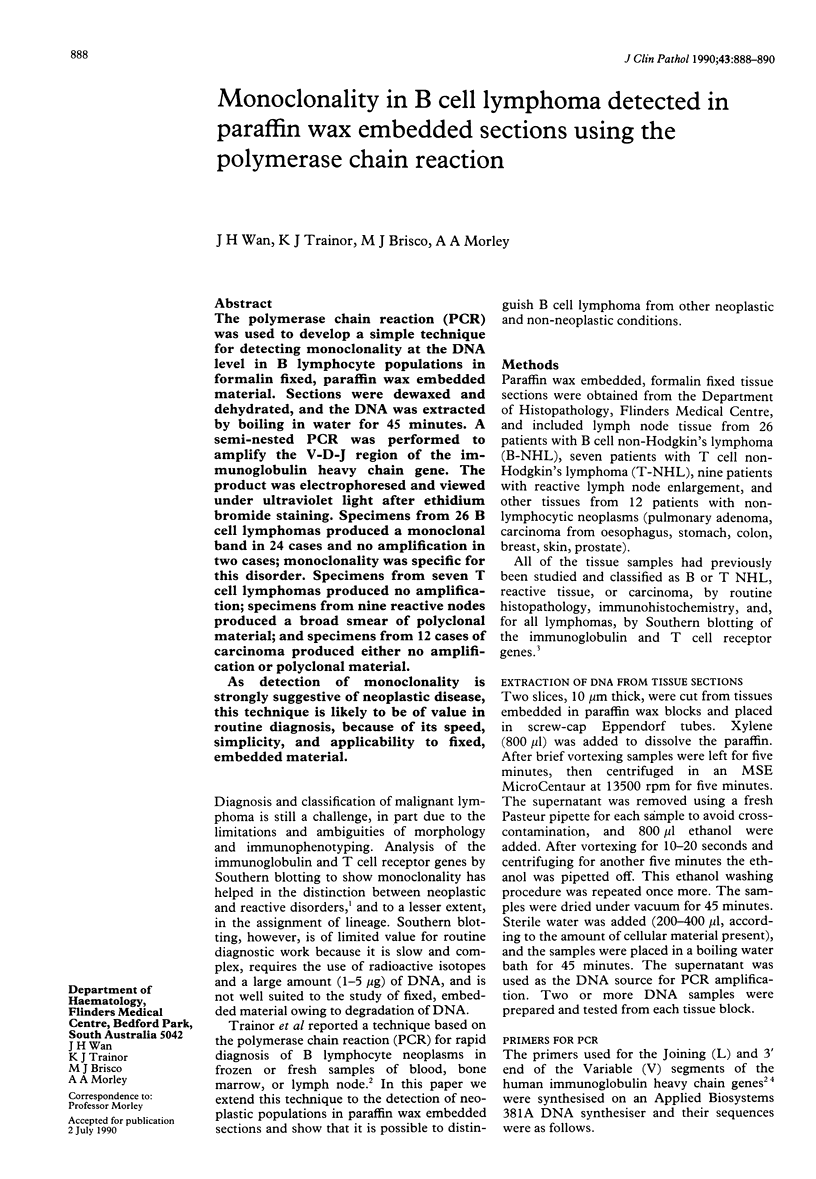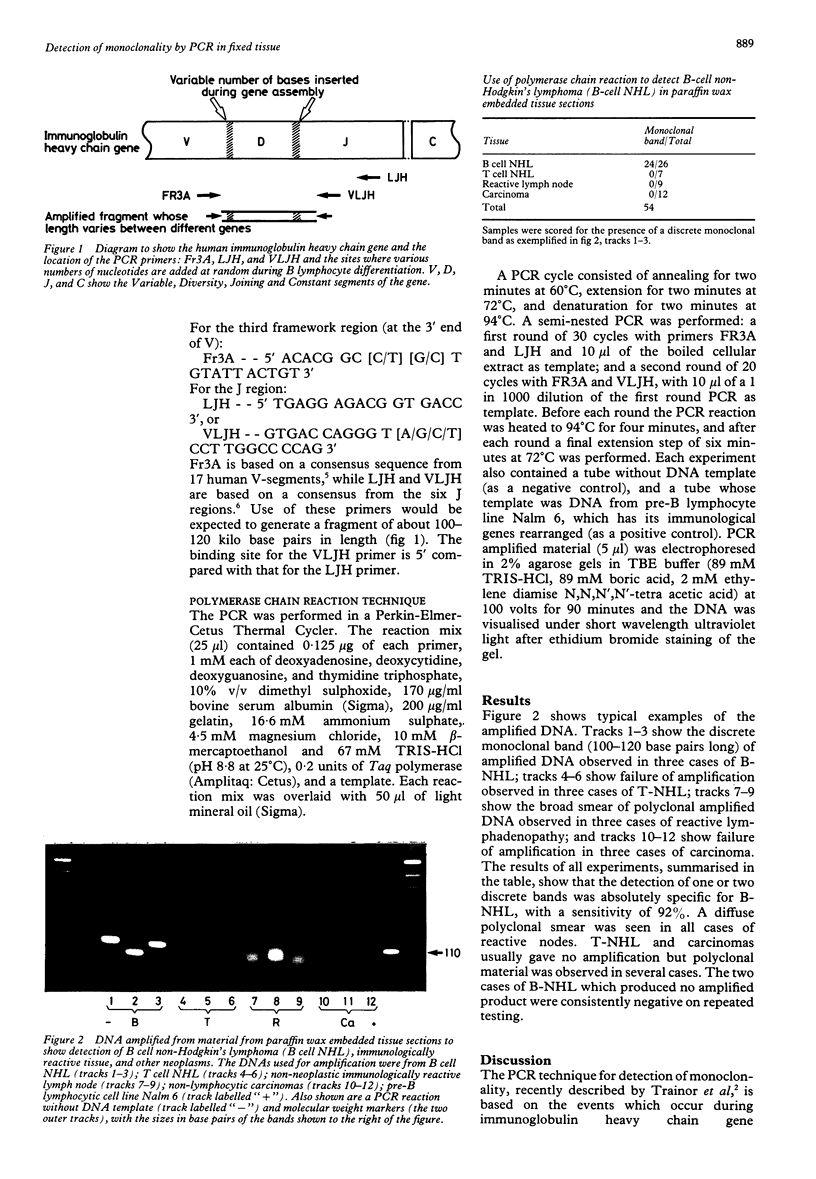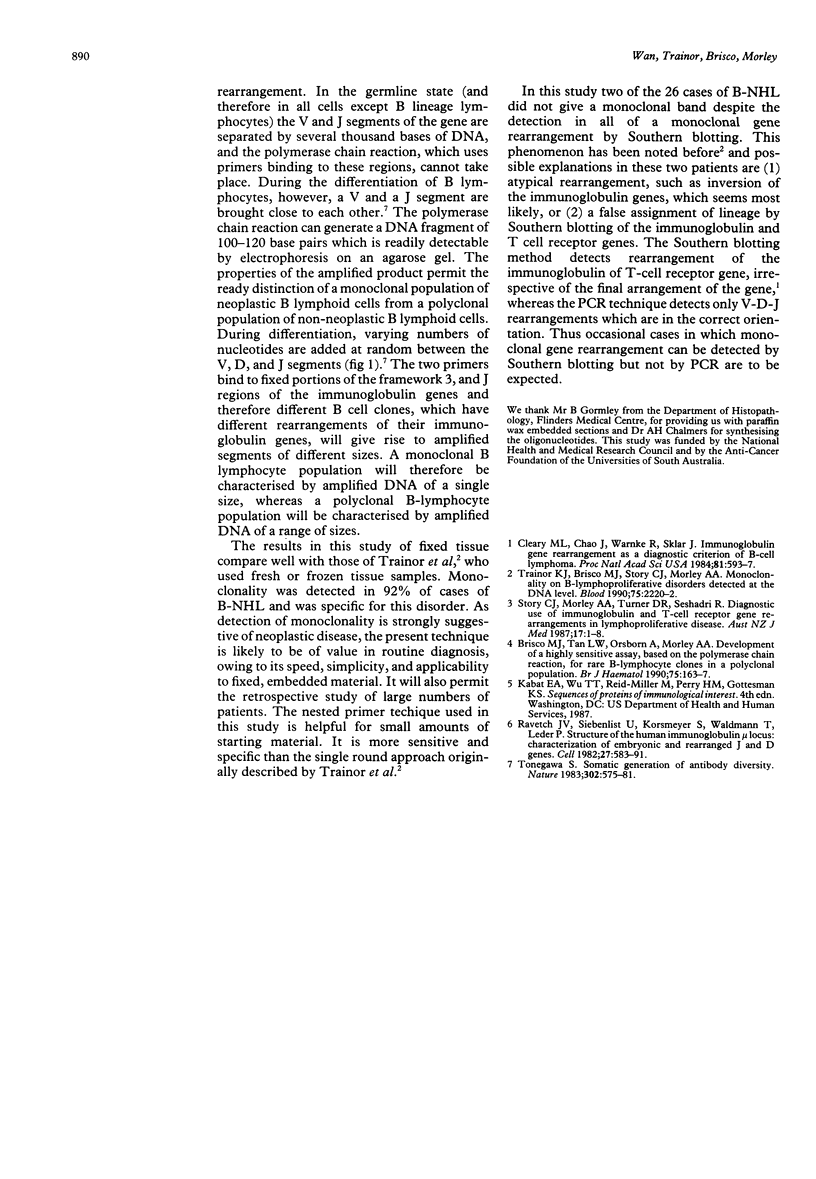Abstract
The polymerase chain reaction (PCR) was used to develop a simple technique for detecting monoclonality at the DNA level in B lymphocyte populations in formalin fixed, paraffin wax embedded material. Sections were dewaxed and dehydrated, and the DNA was extracted by boiling in water for 45 minutes. A semi-nested PCR was performed to amplify the V-D-J region of the immunoglobulin heavy chain gene. The product was electrophoresed and viewed under ultraviolet light after ethidium bromide staining. Specimens from 26 B cell lymphomas produced a monoclonal band in 24 cases and no amplification in two cases; monoclonality was specific for this disorder. Specimens from seven T cell lymphomas produced no amplification; specimens from nine reactive nodes produced a broad smear of polyclonal material; and specimens from 12 cases of carcinoma produced either no amplification or polyclonal material. As detection of monoclonality is strongly suggestive of neoplastic disease, this technique is likely to be of value in routine diagnosis, because of its speed, simplicity, and applicability to fixed, embedded material.
Full text
PDF


Images in this article
Selected References
These references are in PubMed. This may not be the complete list of references from this article.
- Brisco M. J., Tan L. W., Orsborn A. M., Morley A. A. Development of a highly sensitive assay, based on the polymerase chain reaction, for rare B-lymphocyte clones in a polyclonal population. Br J Haematol. 1990 Jun;75(2):163–167. doi: 10.1111/j.1365-2141.1990.tb02643.x. [DOI] [PubMed] [Google Scholar]
- Cleary M. L., Chao J., Warnke R., Sklar J. Immunoglobulin gene rearrangement as a diagnostic criterion of B-cell lymphoma. Proc Natl Acad Sci U S A. 1984 Jan;81(2):593–597. doi: 10.1073/pnas.81.2.593. [DOI] [PMC free article] [PubMed] [Google Scholar]
- Ravetch J. V., Siebenlist U., Korsmeyer S., Waldmann T., Leder P. Structure of the human immunoglobulin mu locus: characterization of embryonic and rearranged J and D genes. Cell. 1981 Dec;27(3 Pt 2):583–591. doi: 10.1016/0092-8674(81)90400-1. [DOI] [PubMed] [Google Scholar]
- Story C. J., Turner D. R., Morley A. A., Seshadri R. Diagnostic use of immunoglobulin and T-cell receptor gene rearrangements in lymphoproliferative disease. Aust N Z J Med. 1987 Feb;17(1):1–8. doi: 10.1111/j.1445-5994.1987.tb05039.x. [DOI] [PubMed] [Google Scholar]
- Tonegawa S. Somatic generation of antibody diversity. Nature. 1983 Apr 14;302(5909):575–581. doi: 10.1038/302575a0. [DOI] [PubMed] [Google Scholar]
- Trainor K. J., Brisco M. J., Story C. J., Morley A. A. Monoclonality in B-lymphoproliferative disorders detected at the DNA level. Blood. 1990 Jun 1;75(11):2220–2222. [PubMed] [Google Scholar]




